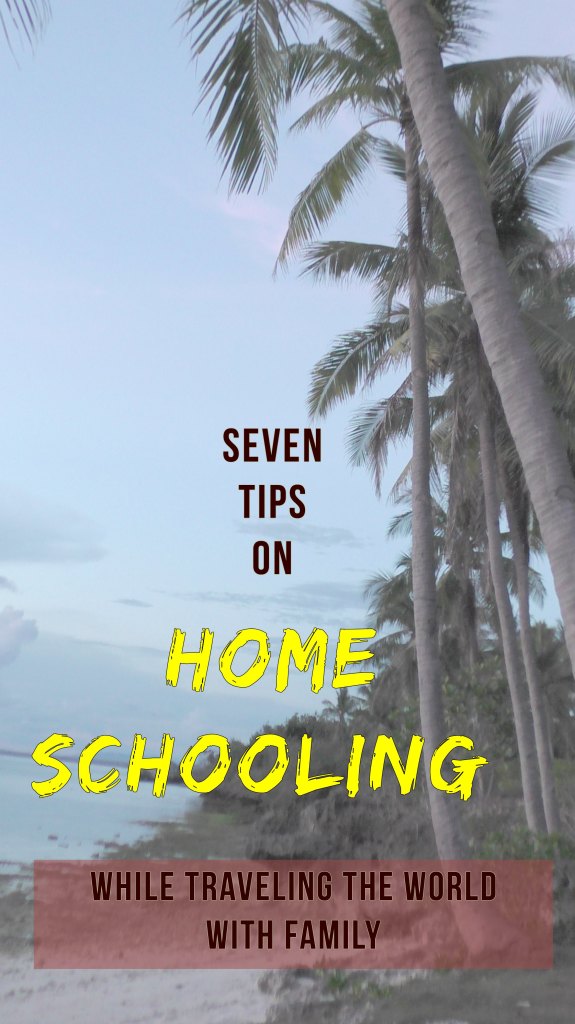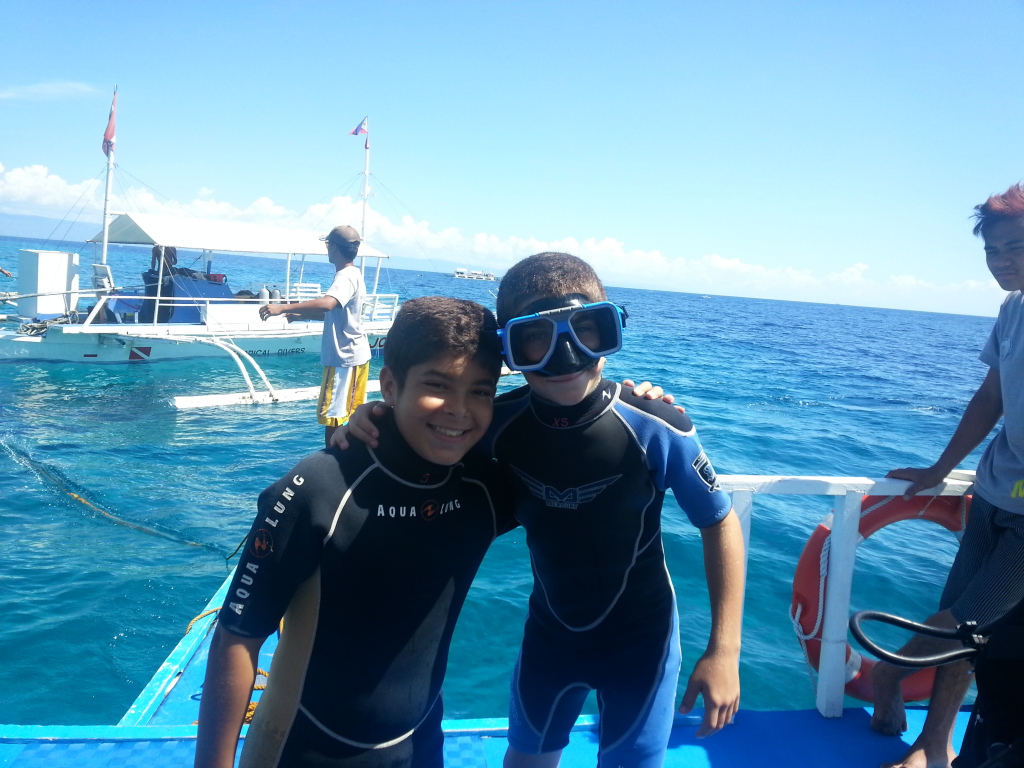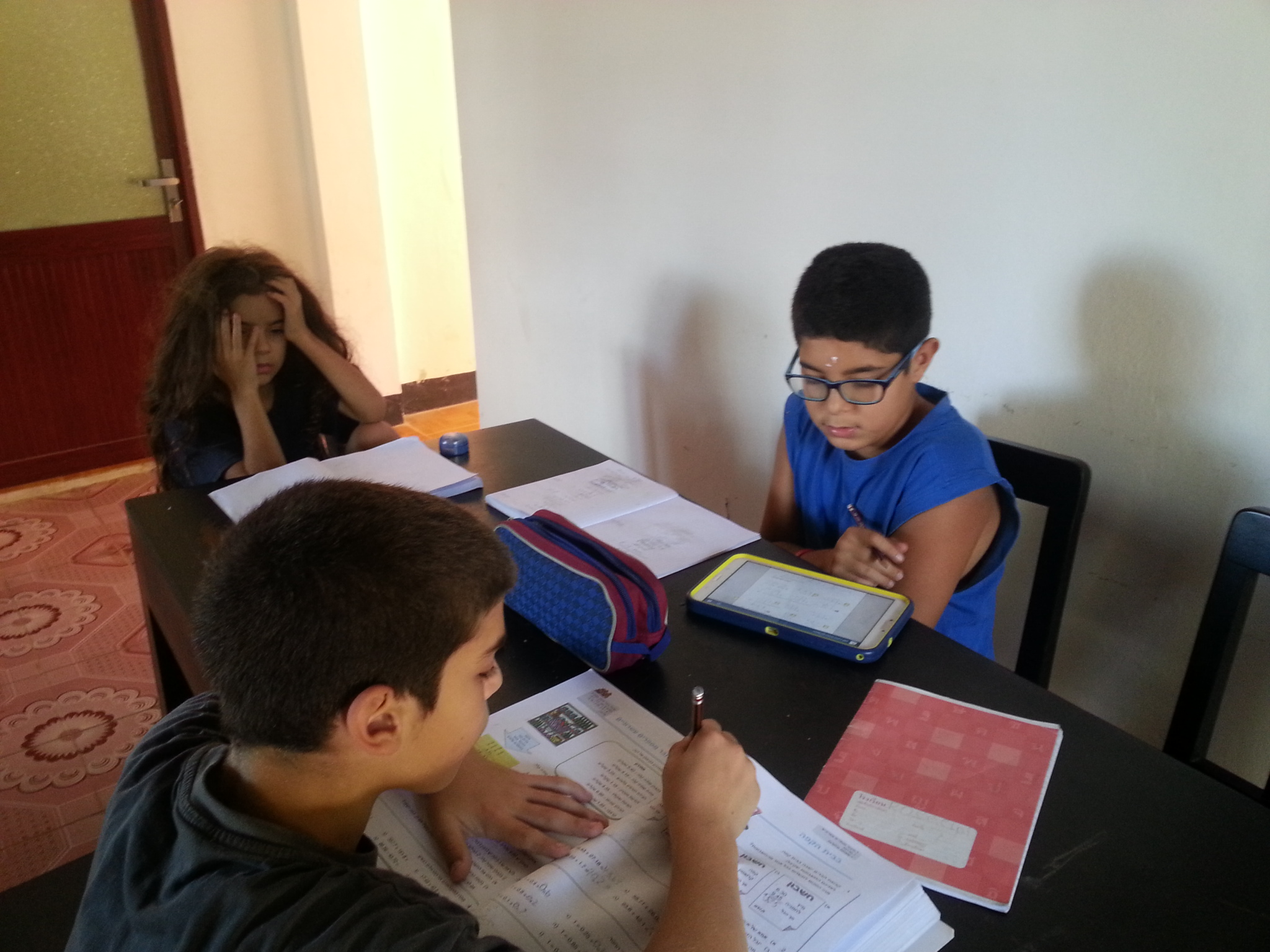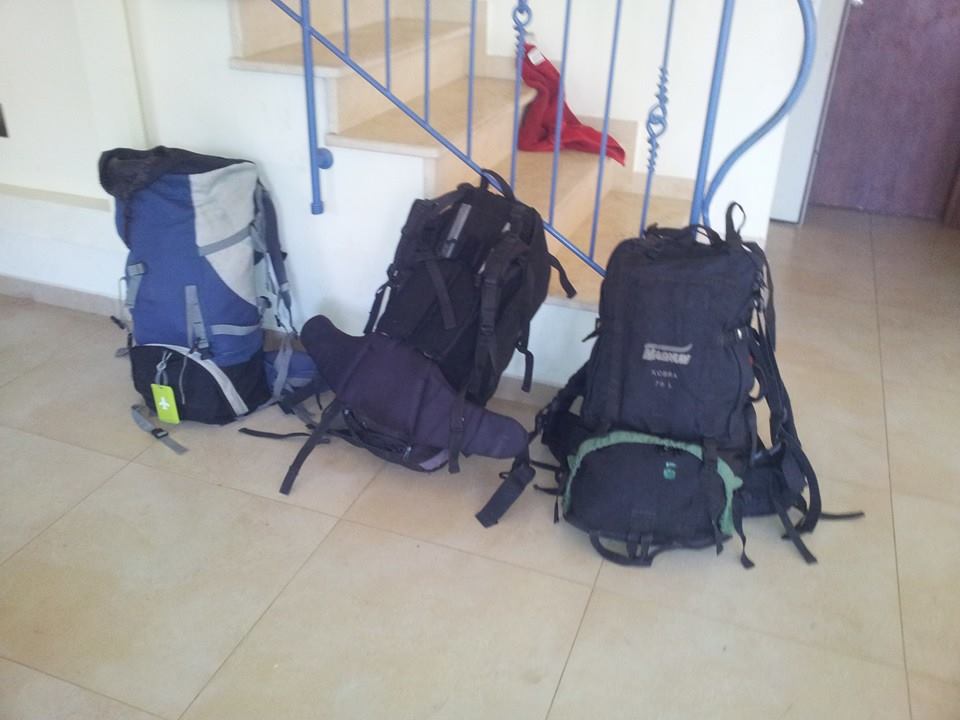“And what about school?”. That’s the question we’ve been asked once every minute and a half from the moment we started telling our friends-and-relations we are about to embark on a one year journey. During the journey itself this question is being asked within three… two… one second from the minute we tell that we are on the roads for several months.
It reminds me a little of the “Is he breathing in there?” I was asked when I used to walk with my babies in a carrier and the “How much courage!” we often received when we chose to do home birth. That’s fine. When going for the less standard and popular choices, one should expect reactions on the scale between shock-and-awe and enthusiastic-admiration. Anyway, nobody is indifferent.
And it’s really fine. We’re not indifferent either. In fact, homeschooling is one of the things we feared most prior to going on our journey and I’ve already written a post about it.
Among family travelers there are several genres on the matter of education and the classification I’m about to do here is of course a little simplified. There is the genre of “we’re so lucky to have small children and we don’t need to deal with it”. There is the homeschooling genre (“we took workbooks with us”), the unschooling genre (“no need for school of any kind, the children learn best when they are not being taught, certainly not in a frontal instruction”), the worldschooling genre (“we expose them to the world and that’s how they’ll study everything”) and various combinations of those. I think we belong to the genre combining homeschooling and worldschooling.
We definitely took some workbooks with us and we definitely saw that exposure to the world teaches our children in levels we didn’t even dream of. I also think that it’s important to check with yourselves when going on a journey what your general attitude is and with that along the way keep on testing it and make sure it fits you and works for you.
There’s no need to play it cool. Education is always in the back of our minds as I presume it is in the back of every parent’s mind and that’s why we never said “it will just be fine”. We’re probably not that cool. And definitely we invested a lot of thoughts and emotions on this subject before we left, we worked with our school (love it, we have only good things to say about it!) on things that were possible and should have been done upfront (for example getting the passwords to the web system the school works with so that The Natives will keep on working with it), we bought the study materials in the core classes, notebooks, writing instruments and on the top of that we added a generous amount of worries and concerns, to keep the good taste.
Today after we practically completed a whole school year during the journey, did exams and achieved nice results, we feel ready to provide some tips to our loyal readers.

You have everything in the internet
Explore the www and you’ll find – exercises, workbooks, Q&A’s, exams and more. We also signed up to some teachers websites (and weren’t asked too many questions) and through it we’ve reached an even larger selection of exercises and school materials.
A recommended site we used is Code Academy where we took some online programming courses. Another site we used a little less is Khan Academy. It has a lot of materials and even an application we installed in The Natives’ tablets, a dream for homeschoolers.
You need workbooks
We saw a great importance in hand writing in notebooks or workbooks and solving exercises on a paper sheet like the good old way. Math notebooks, for instance, were really hard to find in SEA, so I recommend that you’ll bring from home some spare notebooks. It will not make your backpack significantly heavier. The kids can exercise their writing also by having a travel diary, sending postcards to the family, drawing etc. Anything, as long as they don’t only practice mails and text messages.
Focusing
Choose the areas you find most important to get into the curriculum and focus on it. Try to choose from what you feel more confident with yourselves. Homeschooling can be a great spice that harmonically blends with the family journey. There’s no reason to get out of proportion and make yourselves “work in it”.
Trust the process
From our experience The Natives studied formal material for an average of about four hours a week. It’s amazing how little time is required to cover the entire curriculum, especially in Mathematics and Language. The amazing results they achieved in the year end exams speak for themselves.
The rest is done by the journey. The process. It happens in front of your amazed eyes.
All of a sudden you see your kids speaking English, bargaining, converting currencies, inventing games, doing magic tricks, chatting in other foreign languages, meeting people from all over the world, talking about politics and religion and history and geography and growing up between them a new entity – brotherhood.
Exams
Don’t fear the less popular choice of letting the kids get tested. In our eyes, the main purpose of an exam is to test the level of digestion of the material they learned and that’s a happy thing. It’s not supposed to be some method of measuring and comparing them to other kids. The great results they got in the exams pleased us all very much, but no less important was the way all of us dealt with a situation of facing an exam and succeeding in it.
Flexibility and creativity side by side with a routine
The majority of the studying was usually done during our nesting periods. Even a week or ten days in the same location could create school days and of course a whole month enabled us having a pleasant and not too intense school routine. Nevertheless, flexibility is required. For example, with Little One at some point I found it useful to change the way we studied language to a new phase of reading books together. We integrated phrase searching in google into the studying time whenever we met an unfamiliar word or phrase, we had interesting talks on topics that came up while reading and this way achieved both great learning experience and quality time together.
Give them responsibility
We let The Natives be responsible for the school bag and its contents. We worked together with each one of them and planned the curriculum. We didn’t do it by ourselves over their heads. They are responsible to progress with it and make sure they complete their assignments. They also decide when they are ready to approach each of the exams. We are there to guide and help them.
To sum up: Homeschooling is a big title. We decomposed it to stages: planning, execution and monitoring. Planning included preparing the curriculum, school materials and splitting responsibilities between the parents. Execution included structuring a routine, organizing the setting and actually sitting down and studying. Monitoring was done through exams and frequent feedback for many points that pop up along the way like improving handwriting or demonstrating a methodical way to solve a math exercise.





